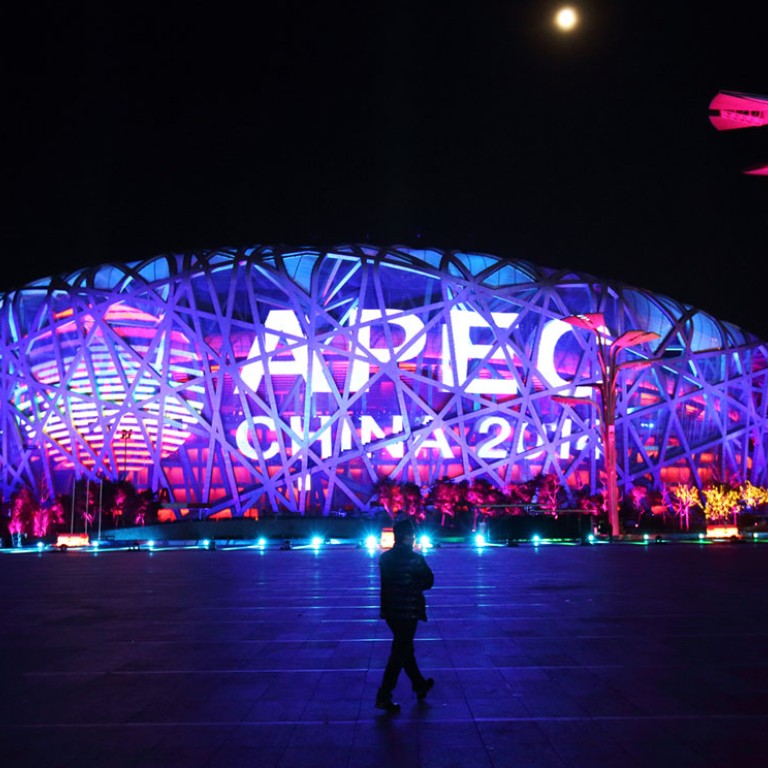
How They See It, November 16, 2014
The Apec summit in Beijing
1. China Daily
The rich harvest from the Apec meeting, which [President] Xi [Jinping] fittingly described as fruitful, indicates that the now 25-year-old Apec is a lot more than just a showpiece. The strategic consensus on building an integrated, innovative and interconnected Asia-Pacific, the road map for the realisation of the Free Trade Area of the Asia-Pacific [FTAAP], along with the strategic blueprint for promoting global value chains, show that Apec has grown to be a worthy partnership builder ... Beautiful as it is, the FTAAP will be unreachable with members of Apec bogged down in political strife. [Without] trust, the synergy indispensable for the fulfilment of Apec's ambitions will remain illusive. Beijing
2. The Asahi Shumbun
This year's Apec summit stressed the group's commitment to promoting the Free Trade Area of the Asia-Pacific ... For Japan's future economic growth, it is vital to ride on the growth potential of the Asia-Pacific region through economic cooperation. The Apec region represents nearly 80 per cent of Japan's exports, more than 60 per cent of its imports and 70 per cent of its direct investment. The immediate priority of Japan's trade agenda should be to strike a TPP [Trans-Pacific Partnership] agreement ... The Japanese government should seriously consider the argument that a TPP agreement could be a short cut to broader regional economic cooperation that also involves both China and South Korea. Tokyo
3. The Korea Herald
The leaders of [South] Korea and China [Park Geun-hye and Xi Jinping] declared a de facto conclusion of free trade negotiations between both countries during their summit in Beijing on Monday ... The conclusion of the free trade accord may result in further boosting political and diplomatic cooperation between [South] Korea and China. This prospect, however, requires Seoul officials to be more careful to keep the country's key security alliance with the US intact. Korea will also have to make a difficult decision on how to respond to China's initiatives to restructure the global economic and financial system, [which are] currently dominated by the US and its allies in the West. Seoul
